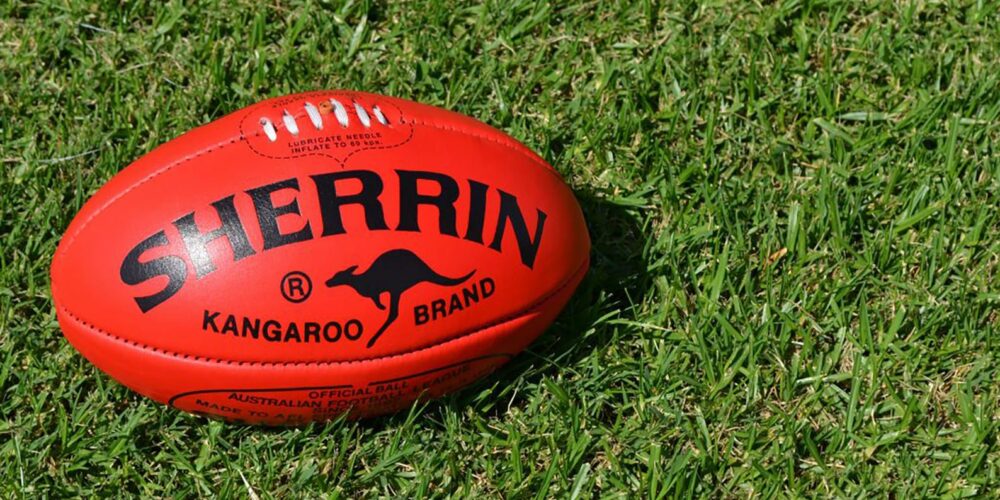Curtin program uses AFL clubs to improve male footy fans’ health

A 12-week Curtin University study delivered in collaboration with Western Australian AFL Clubs has helped overweight and obese men in WA improve their overall health and wellbeing.
The research, published in PLOS Medicine, examined the appeal and preliminary effectiveness of the Aussie-FIT program, which was specifically designed to use the popularity of football to attract and engage men in health behaviour changes.
In this pilot, 130 male AFL fans who were overweight and obese signed up for the program and, in a team of fellow fans and led by a football coach, were supported to lose weight and learn skills to help them maintain and enjoy a fit and healthy lifestyle for the long term.
The Aussie-FIT project, funded by Healthway, was run in partnership with the Fremantle Football Club, Curtin University, West Coast Eagles Football Club, Edith Cowan University, Glasgow University and The University of Newcastle.
Project chief investigator Dr Eleanor Quested from the School of Psychology at Curtin University said the study was highly successful in supporting the men to make small but sustainable changes to their eating and exercise behaviours. The pilot provided preliminary evidence that men not only lost weight during the 12-week program, but maintained the weight loss for three months after it finished.
“One of the unique features of Aussie-FIT was the connection with AFL teams in the State. Men were attracted to the program because of the opportunity to join with others who share a similar interest in sport and go behind the scenes at an AFL club, with education sessions held in club boardrooms, player visits and behind the scenes tours,” Dr Quested said.
“Taking part in Aussie-FIT involved attending 12 weekly 90-minute sessions which included supervised physical activity and education sessions designed to promote and sustain motivation and healthy habits to eat better and be more active and this educational approach is a key part of what makes the program successful.
“It was the first program of its kind in WA that was a WA men-only weight loss program that uses sport as a hook to engage men, and includes educational sessions as well as physical activity sessions, to support men for long term health behaviour change.
“There was plenty of ‘friendly banter’ and opportunities to discuss and share experiences. It wasn’t just about being healthier during those 12 weeks – the men were empowered with the skills to sustain a healthier lifestyle in the longer term, without ongoing attendance at a weekly program.”
Three months after the program had finished, the men who had completed the program had lost on average 3.33 kilograms more than a comparison group of men who were waiting to start the program. They also reported greater improvement in their overall health, as well as in their self-esteem, positive feelings and emotions. The study also found that the Aussie-FIT participants reduced the amount of fatty and sugary food they consumed compared to the control group.
Dr Quested said the findings had important implications for overweight and obese men living in WA, adding that identifying programs that appealed to middle-aged men could help improve their physical and mental wellbeing.
“In Australia, an estimated 71 percent of middle-aged men are overweight or obese, with most Australian males living inactive lifestyles and experiencing unhealthy eating habits. It is often assumed that men are reluctant to take action for their health, but our research shows this simply is not the case. Within three days of advertising at each club, we received three times more men wanting to join the program than we had places for,” Dr Quested said.
“Our study highlighted the importance of socialising and relationship building with like-minded males who were looking to achieve the same goal in weight loss. We found that the participants really supported each other to lose weight and were more active in a fun atmosphere, with the guidance of a supportive coach.”
The sessions were delivered by coaches, who were trained by the research team in program content and motivation techniques to encourage participants to develop and sustain healthy lifestyle habits.
It is hoped that this pilot will set the stage for further development and delivery of Aussie-FIT to benefit more men in WA. For example, with grant funding from the Heart Foundation, Dr Quested and colleagues are now developing and piloting a version of Aussie-FIT for men with cardiovascular disease.
In addition, a recent award from the Department of Health will support deliveries of Aussie-FIT in remote, rural or regional areas of WA. The team is also exploring opportunities for delivering a program for female sports fans.
The research paper titled, ‘A gender-sensitised weight loss and healthy living program for men with overweight and obesity in Australian Football League settings (Aussie-FIT): A pilot randomised controlled trial’, can be found online here.
Further information on the Aussie-FIT project can be found online here or follow on Twitter @aussieFITorg



